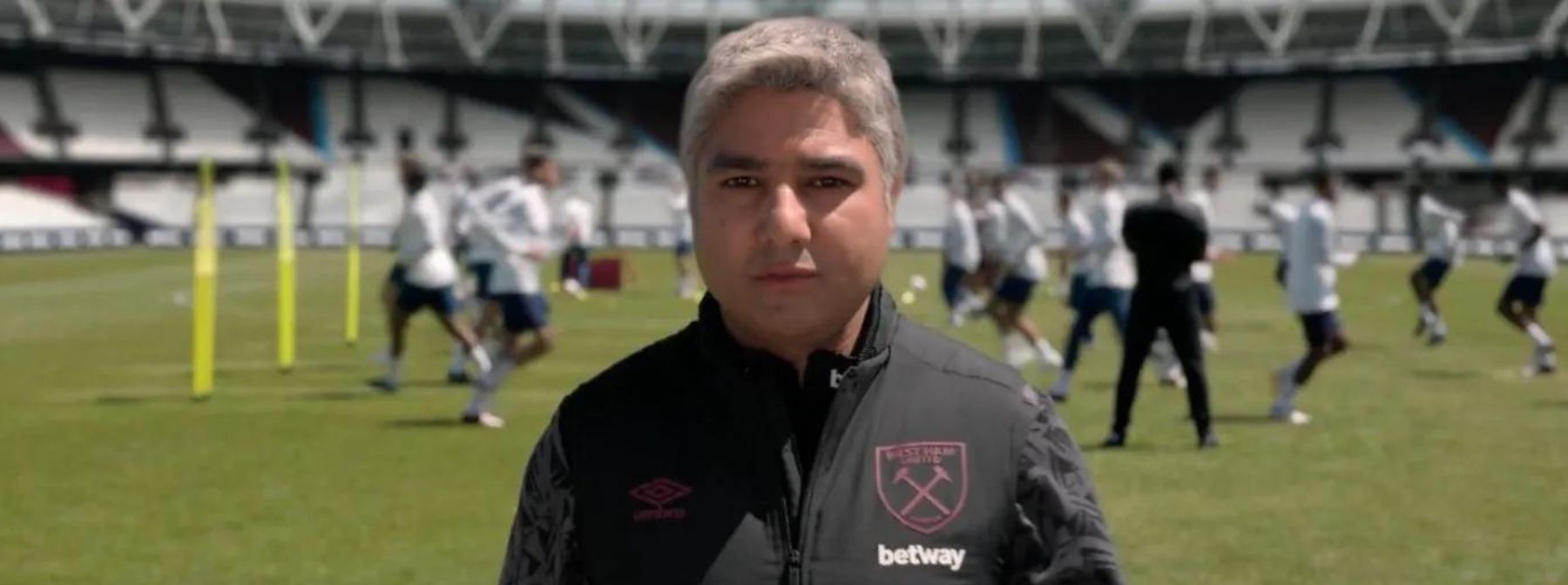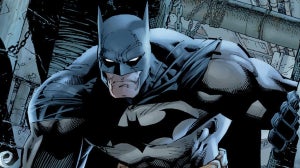
Upon introduction in the first season, Nick Mohammed's character seemed poised for a classic rags-to-riches tale: the bullied kit man who had a hidden tactical greatness that would help him rise through the ranks behind the scenes at AFC Richmond.
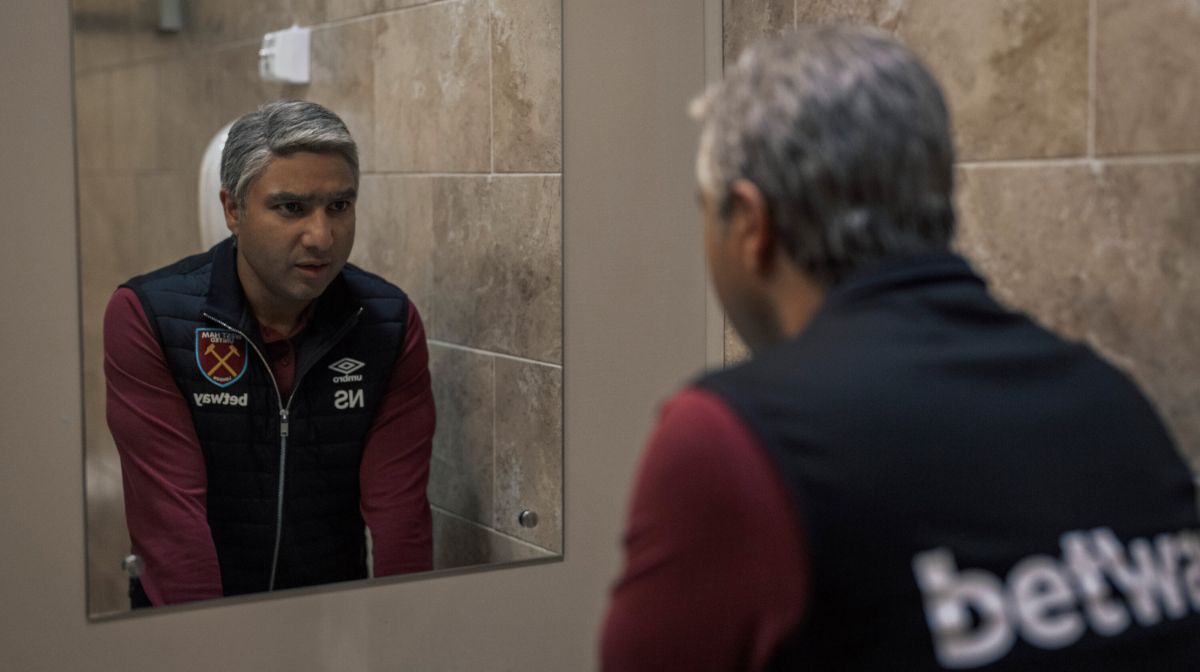
But the second season turned out to be about the very dark side of that success, as Nate's ego and insecurities grew out of control, ending the season by betraying Ted through leaking news of his panic attacks, before leaving the club to become the new manager for West Ham. He's clearly skilled at what he does - but it has come at a significant personal cost.
As the third season passes its halfway point, it has so far refused to offer up a simple redemptive tale for the character, something which Mohammed believes makes Nate a fascinating figure to explore.
He told Zavvi: "I think the story of this season is less black and white than whether or not he's redeemed, there are a few more layers to it than that. I think for some people, Nate could do absolutely everything and beg for forgiveness, and they still wouldn't forgive him for what he did at the end of season two.
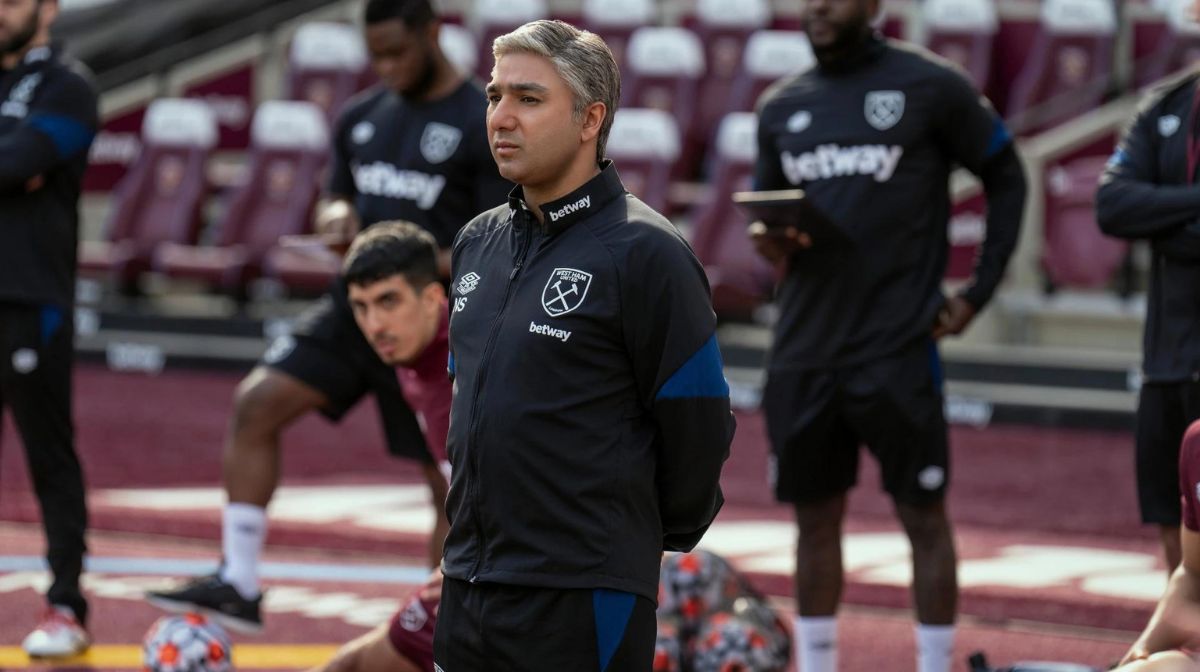
"Without giving anything away, I think this season for Nate is about him finding some sense of internal happiness, because we know despite being at a fancy club and driving a fancy car, he's still not happy with the things he thought would make him happy. He's a ruthlessly ambitious guy, but I think he's slowly realising that those aren't necessarily the things that matter, so we can now see, mid-season, that there is this regret, but whether regret is enough for redemption is up for the audience to decide."
Despite his character becoming the closest thing Ted Lasso has to a villain over the past couple of seasons, Mohammed has always approached the role knowing the dramatic turn that lay ahead for his character. He's still surprised many viewers didn't pick up on signs back in season one.
He continued: "There's quite a key moment, which largely goes by unnoticed in the gala episode of season one (Episode 4, For The Children). At the very end, everyone gets up and starts dancing and Nate doesn't, he sits at his table, and watching this during season one, you're supposed to take this as him being shy.
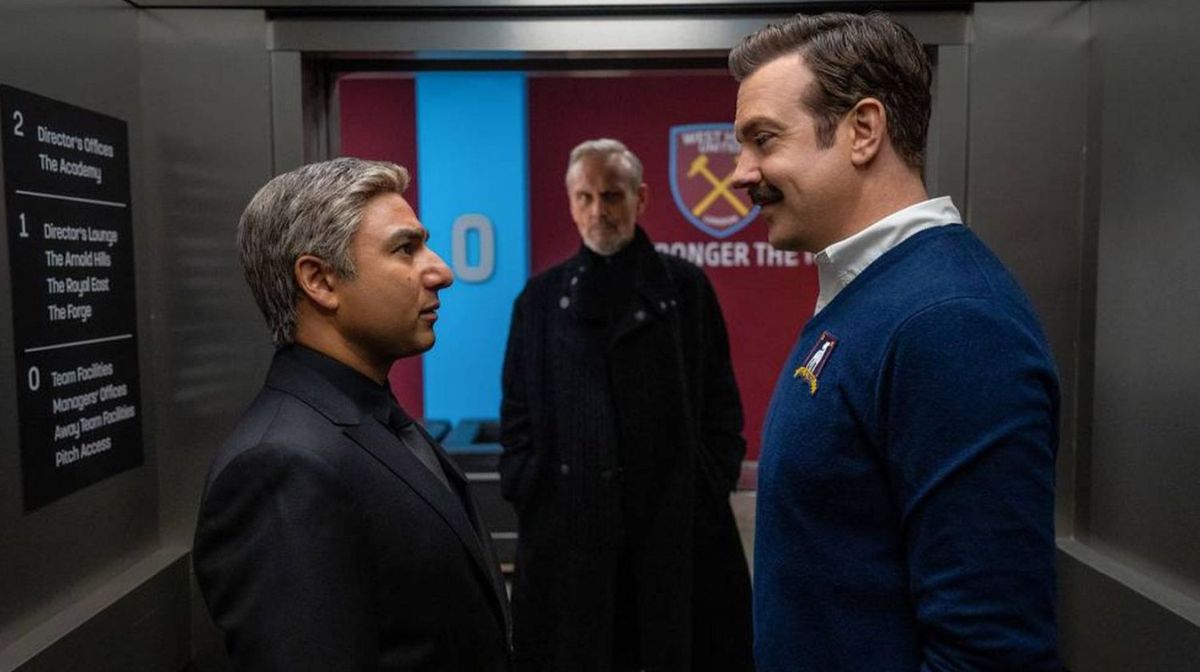
"But it happens just as Rupert (Anthony Head) walks in, and Jason and I had a really long conversation about him realising that he's just commanded the room by walking through it, and how inspiring it would be to do the same. Nate is just taking all in thinking he could do this, it's nothing to do with his insecurities about dancing; he's sitting back and taking it all in."
Whilst Nate may effectively be the "Anti-Ted Lasso" rather than a villain, spreading cynicism in his managerial role rather than a positive attitude, Mohammed still enjoys being labelled as the show's evil character.
"It's fun to be named the villain, and especially if you look back to the first episode this season, he's rude and he's a bully: Rupert has fully taken him under his wing. But I think we're starting to see the cracks in that, and I think as an audience, we're getting to see that he's much more misunderstood - he's made a lot of mistakes, which is partially why this narrative is about testing our capacity for forgiveness.
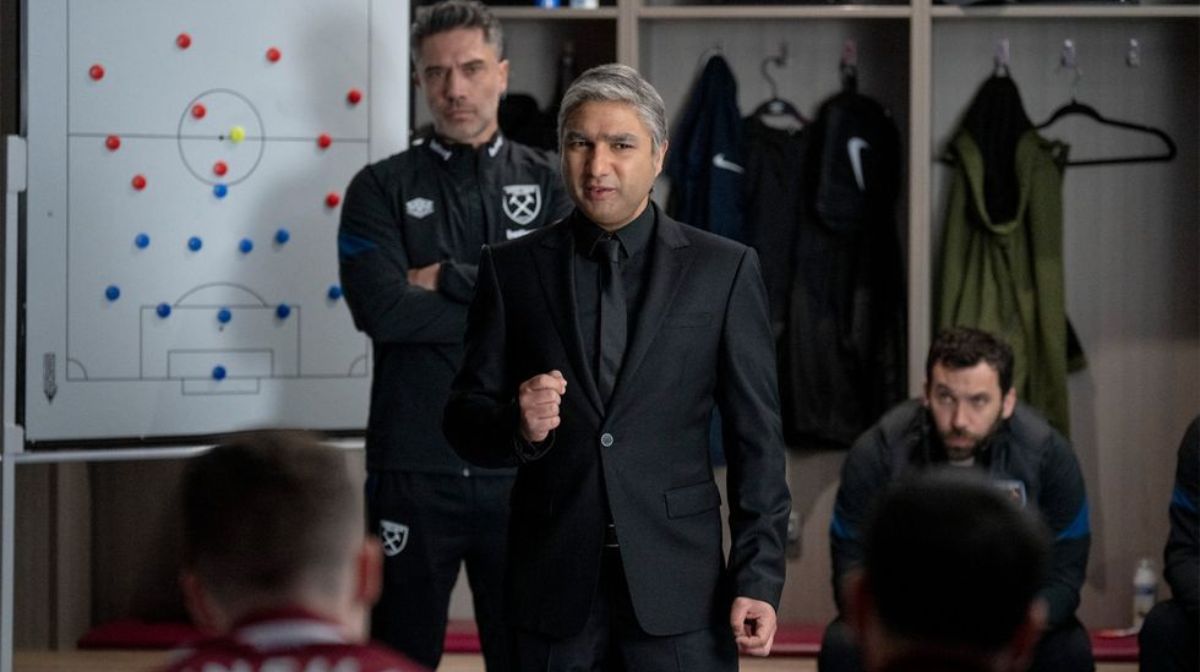
"I don't think people have seen him do enough yet for that forgiveness to start, but I do think it's much easier to empathise with his internal struggle than it was last season."
Nate's downfall can be partially prescribed to social media. After leading AFC Richmond to a victory in a crucial match back in season two, his tactical abilities saw him labelled a "Wunderkind", a moniker that still boosts his ego to this day - in the most recent episode to air, we hear his Siri is programmed to refer to him as Wunderkind at all times.
His mood is dictated by the praise and criticisms from anonymous strangers on Twitter, labelling him either a hero or a muppet based on the team's success in any given game. It is, of course, a cautionary tale about using social media, so I was surprised to hear that the storyline hasn't particularly changed the way Mohammed himself approaches the apps.
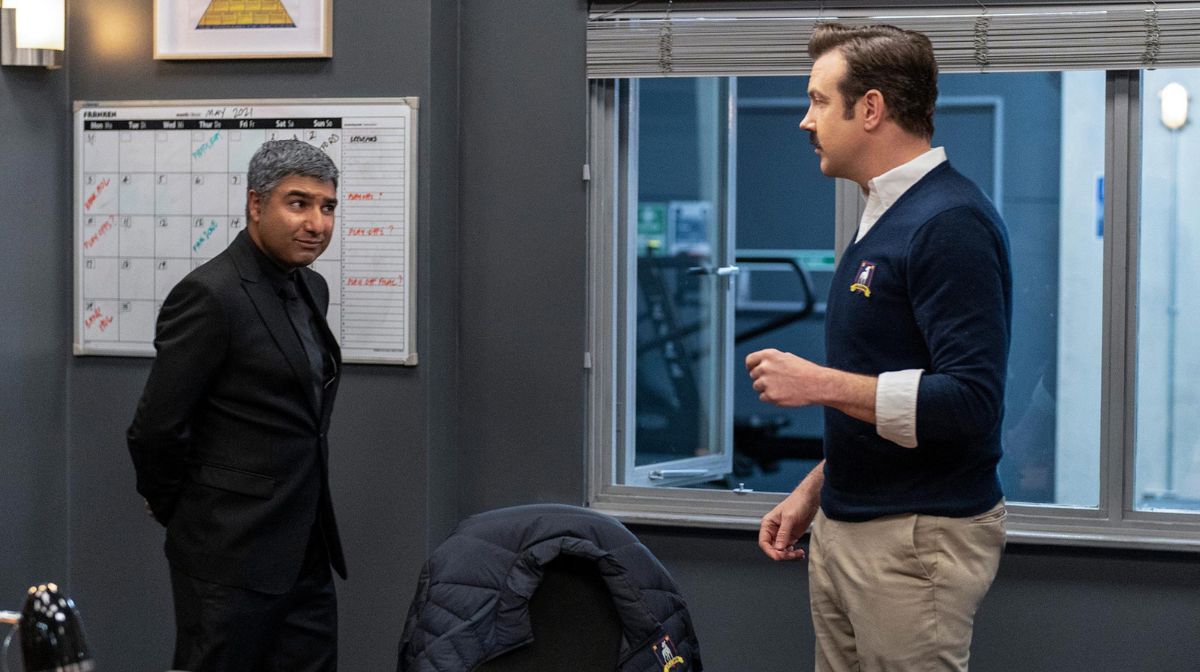
"I came off a little bit, but then I clocked back in at the end of season two, partly because of the nature of the season finale - I wanted to see what people made of it, and they'd gotten mad! I had the brief thought that I should stop looking at Twitter, because that's what Nate does, but even that felt really weird, as it would be making the exact same mistake by letting this define my life.
"So I try and dip in and out, maintain a healthy distance. I largely enjoy it still, but that's because I'm there for the jokes!"
However, Mohammed is quick to say that Nate's transformation isn't entirely due to unprecedented success and a newfound public persona. As we can see from his unhappy relationship with his dad, the seeds of insecurity have been planted from a very young age, only properly sprouting now.
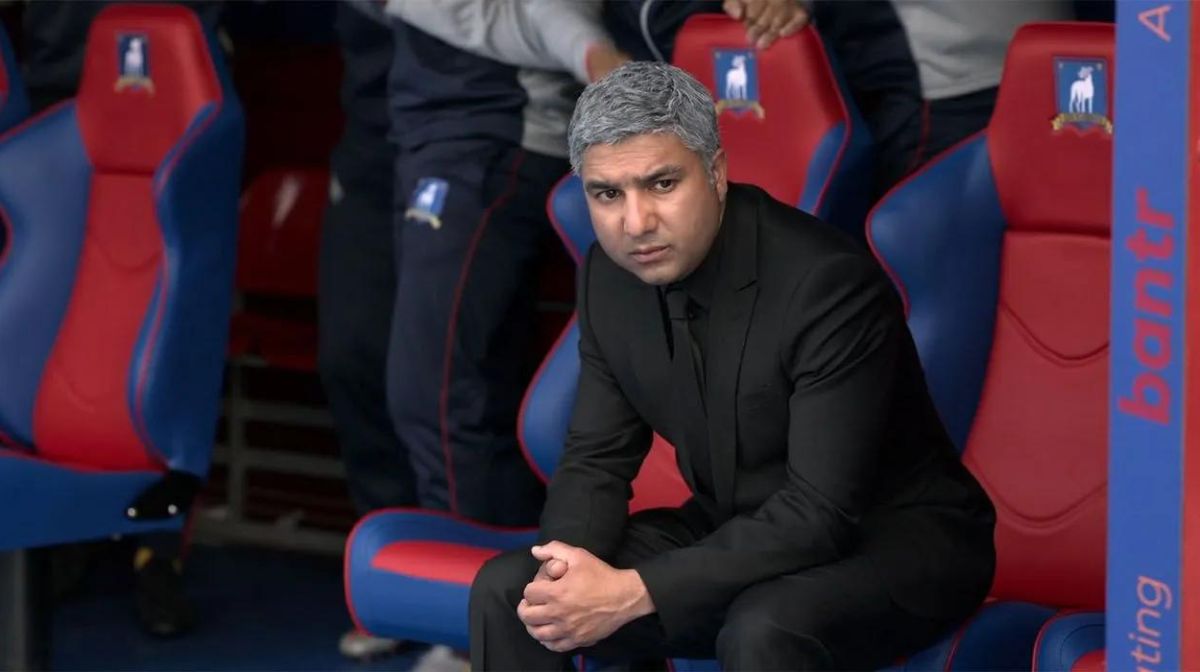
"Nate is riddled with insecurities, which stem from a toxic relationship with his dad . He's very vulnerable when it comes to social media and the pitfalls of of that, because, he's very easily seduced by it, so when he encounters any negativity, it makes him lash out in ways that someone who is more together and has a support network wouldn't.
"It's definitely contributed to the highs and lows of his journey, but I feel like the insecurity stems from his dad; he's been put down for 30 odd years and that that has ultimately influenced who he is. And I feel like he's obviously met Ted and been empowered and had his confidence increase and that's been wonderful for him and has brought him great happiness, but quite quickly that responsibility has turned into arrogance and then worse and bullish behaviour."
So, whilst the rest of the season won't offer anything as straightforward as a Nate redemption arc, there are still signs his life will change for the better. He still shows some regret for blanking Ted at West Ham's recent match against Richmond, and has finally started to use his confidence in positive ways in his personal life, including to finally ask out Jade, the waitress at his favourite Greek restaurant.
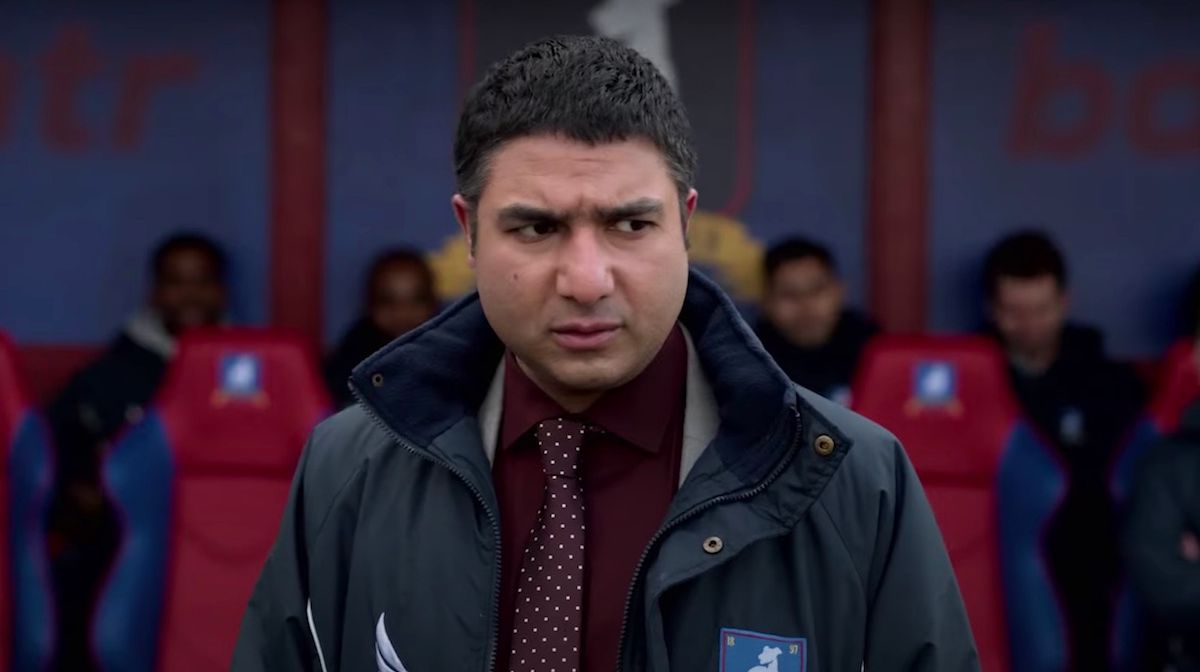
It could be a happy-ish ending for the complex character, if Ted Lasso is due to end with this season, now the show's originally pitched three-season arc is wrapping up. The cast are all hopeful for a fourth, but Mohammed has started saying goodbye to his character, just in case.
"I genuinely don't know if this is the end; maybe there's a break and we come back or who knows. But they've been really honest saying that it had been mapped out as a three season arc from the off, and that doesn't prevent there being more but... well, I can't give anything away!
"We happened to film some of the last scenes with Nate in season three, possibly his final scenes, on the very last day of filming. Because of the nature of those scenes, which I won't go into, there was an added emotion to them anyway, so they suddenly felt very real; that was me saying goodbye to Nate."
Ted Lasso airs Wednesdays on AppleTV+.
For all things pop culture, follow us on Facebook, Instagram, Twitter and TikTok.

